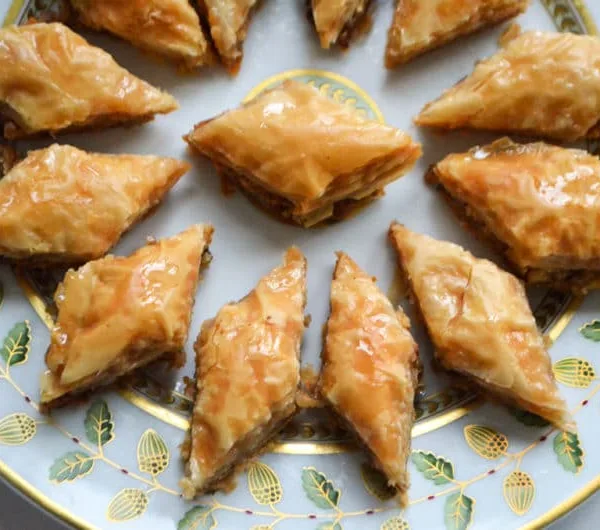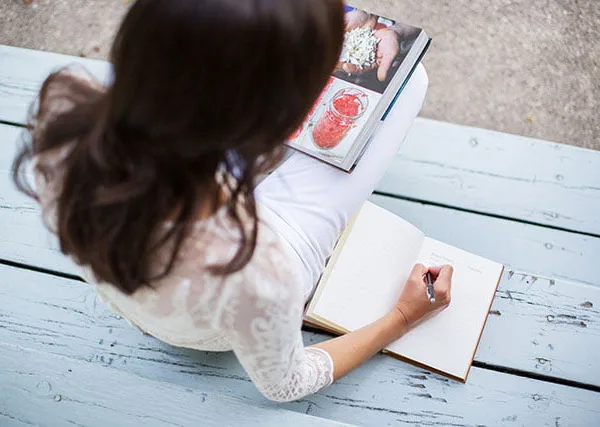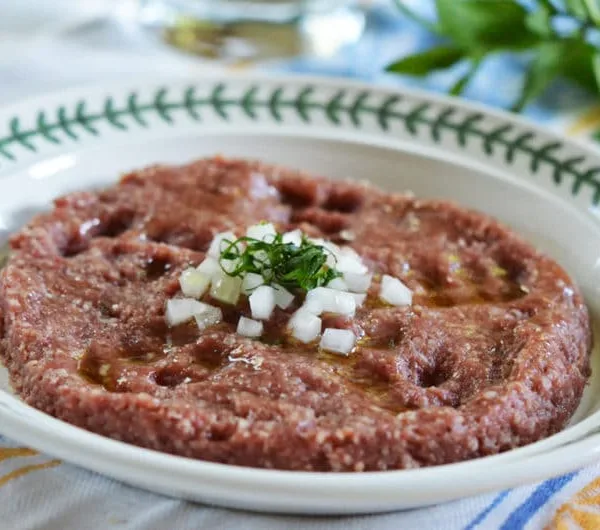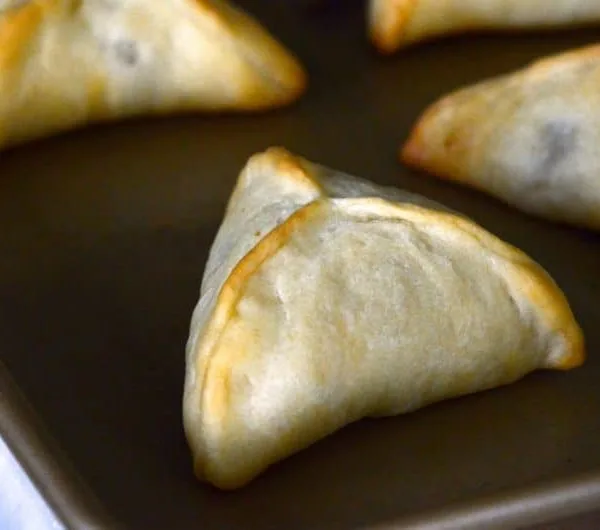This post may contain affiliate links. Please read our disclosure policy.
A story from Maureen Abood. Get the recipe and all of the tips you need to make Lebanese Stuffed Grape Leaves here on the recipe post.
_______
There is one thing I’ve always thought was a given about grape leaves: that fresh is best. In other words, that leaves picked when they’ve just unfurled from the vine in the spring and eaten immediately make the finest little stuffed rolls.
Or so I thought, until I met my father’s cousin May, and therefore my cousin May, in Lebanon recently. May spoke to me of my father’s family village of Dier Mimas, a place I’ve held in my lifelong imagination. She had heard we would not be traveling to the village, and she wanted to know why. My response pained me, as it did her, but I thought it best to simply out with it: I want to go there very badly, but we don’t think it’s safe. The village is at the southernmost point of Lebanon, on the Israeli border. Safe! It’s fine! May said. Then Aunt Augette, a commanding beauty of a matriarchal woman, chimed in and saved me: No, it is not safe, and they should not travel there. Period. The End.
We spoke then of the thousands of grape leaves May picks in her home village every year. They live in Beirut now, as many do, and travel to their villages every weekend to relax and see the family. May preserves the leaves of Dier Mimas not by freezing them, but by jarring them in water and salt.
May told me she prefers to jar her leaves because they retain a nice color and have great flavor. Then she offered to make some for us so we could taste her pride and joy. Then she offered to send a jar home with me. Good manners would have refused but I couldn’t help myself from saying yes on every count. And the look on her face reminded me that good manners, Lebanese-style, is to accept the invitation of family and food, to eat, to enjoy, and to recognize the gift of the cook that you have been given.
_______
And what a gift it was. We had decided on this dinner just the night before, but here was a spread that would take most of us days to prepare: kibbeh nayeh (yes, we ate it raw more than once in Lebanon; it was spicy and delicious), kebab with toum sauce, tabbouleh, hummus, labne, and a massive platter of Dier Mimas grape leaves. She’d made 300 tiny rolls that day. Also plates of green plums and kumquats (such color!), Lebanese wine and arak graced the table. Oh, and little pizzas, I can’t forget the pizzas! Then desserts of all sorts filled the table, including the Lebanese ice cream I’d been hoping to taste all week. But even my sweet tooth couldn’t help but be dazzled instead by the fava beans that were handed to each person straight from a brown bag from the market. We plucked them from their pods, popped the beans from their skins, salted them, and ate. What a contrast to the precious eating of favas that takes place in San Francisco restaurants all spring. It was the finest palate cleanser I’ve ever had.
I was in the kitchen before dinner and May showed me her stuff, her way of kneading the kibbeh, her way of combining the tabbouleh with all of its components prepared and waiting for this moment in the refrigerator, and her way of demonstrating that here in her kitchen was the epicenter of the family. Her gorgeous children and husband buzzed all around her, teasing and laughing. You like my home? May asked with a smile in her broken English. Oh yes, I like your home. In walked more cousins and more, and the elders whose faces I knew even though I had never seen them before. One of these women, Aunt Miriam, wore a black and cream silk blouse and first thing she said, showing off her blouse, was: Hilda bought me this! It looked just like a blouse Aunt Hilda would buy, and that gifting probably took place 25 years ago.
Aunt Miriam and the others of that generation there with us that night—they are nieces of my grandmother. My father’s mother, Nabeha. Who I never met because she died when she was only 49, when my father was only 20. Who I’ve heard so much about and written so much about that I begin to be unsure of what I’ve made up and what is actually true about her and about Dier Mimas. I asked Aunt Miriam and Aunt Augette at dinner that night in Lebanon: you remember my grandmother, Nabeha? Of course! they said. And we loved her! She was wonderful!
Of course! I said. It was all too much, and at the same time, not enough. I wanted to trace their faces onto my fingertips and record the sound of their words in my ears. I wanted to go to Dier Mimas, and taste it all. Next time, I said, we will go to Dier Mimas.
_______
My tears flowed freely that night, as they had the night before when I sat at dinner next to Mirna, another young cousin of this clan who spent so much time with my brother Chris and his wife Ruth when they were in Lebanon six years ago adopting little John. Mirna kept Ruth close during what turned into days of war. Mirna took risks for Ruth without another thought (just as Ruth took risks for John without hesitation), driving her through the bombed city to get her and the baby to the military boats so they could leave. I asked Mirna, was that the area just over there on the coast of Beirut where you took Ruth? And here we were looking at a photo of the baby who is no longer a baby but a beautiful little boy whose mother escaped a war, but not the cancer that took her from him.
Can you blame me for the tears of both joy and sorrow?
Or for taking home the jar of grape leaves from the soil of an unreachable Dier Mimas?
Or for writing this blog, which we all know by now is becoming a love letter to history, to family, to food, to that which we know because we taste it, and do not know because we have never been there.
_______
Get the recipe and all of the tips you need to make grape leaves here.











Maureen,
I loved reading your story. So beautiful, and sad and happy. I’m tearing up. So many similarity with the warmth and hospitality and openess in my family
Thank you so much dear Renee. We share that family feel and what a warm blessing it is.
So beautiful, and sad and happy. I’m tearing up. So many similarity with the warmth and hospitality and openess in my family
Oh Maureen,
I share your happy/sad tears.
So many similarities in my families.
God bless all the Abowd/Abood wonderful families.
Happy Thanksgiving.
Liz Bojalad Abood (not your Aboods)
Liz “cousin”! Thank you so much for sharing in the nostalgia and joy (and tears). Bless you and your Abood family, with love from ours.
Maureen, I loved reading your story. My father was born in Akron ), Ohio, but his parents sister and brother were all born in Lebanon. My father died when I was only 2, but I grew up with the love and support of my giddoo and my uncle John and his family.
Food was an integral part of all our gatherings and celebrations. My mother learned many of the recipes of my aunt, and cook a few of my own. I love reading about your visit to Lebanon, but I have not had the opportunity to do so. My father’s family did not speak about the old country, much, and always felt it was too dangerous. Much of my love for our culture, comes not just from my direct family, but also from all the people of my Antiochian church. It was like our own little Lebanon!
I have your Rose Water and Orange Blossoms book, that is as enjoyable to read as it is eating the recipes.Frowing up, I wrongly assumed all Levanese food was prepared just like my family did. I have grown some, and learned to try many things I never had before. That said, I find that many of your recipes are very similar to those I grew up with, but never had access to.
Thank you for sharing your food, your culture and your love of the Lebanese.
George Jacob
George what a beautiful note. Your own little Lebanon! I’m so very happy my recipes connect to those you grew up with. And what a special family you have, taking such good care after your father died. Thank you so much for sharing and please keep in touch with your Lebanese cooking adventures!
Beautiful
Thank you so much Natalie!